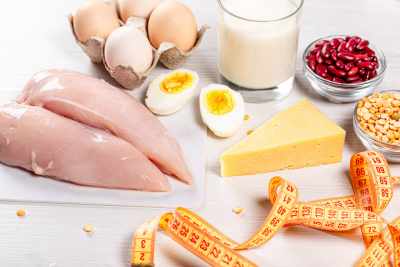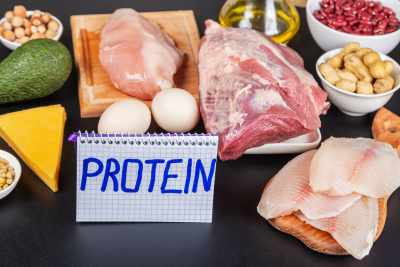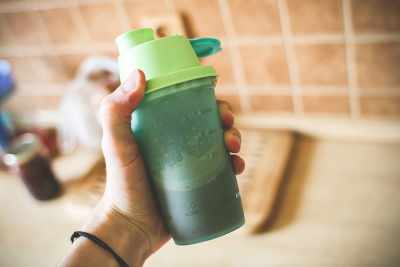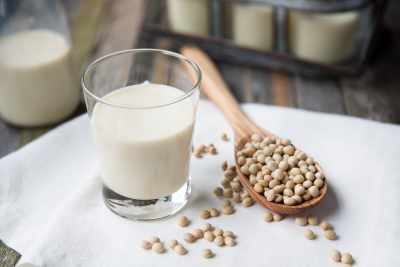Protein is a macronutrient that is essential for bodybuilding. It is a vital building block of the human physique. Chemically protein is composed of amino acids that help to build muscle mass. It is an essential nutrient, but not everyone gets sufficient amounts of it. So, you can use the protein intake calculator to see if you have sufficiently provided yourself with the nutrient. And to help you out, we have covered everything you need to know about the protein intake calculator in this blog.
Table of Contents
Protein intake calculator
The protein intake calculator determines the regular amount of dietary protein consumption adults need to be healthy. Under 18 who are in sports or exercise daily need more protein. Pregnant women need to eat about 70-100 grams a day. The protein intake calculator plays a role as a supervisor for liver issues, kidney or heart health where protein consumption is a facet. Protein intake calculator called protein o meter, and it gives you an accurate count.
A protein intake calculator requires the basal metabolic rate or the number of calories the body needs at rest to sustain basic life functions – cell productions, circulation, breathing, etc. BMR is determined by age, weight, gender, height, and activity level.
The amount of protein requirement
The necessary amount of protein that a person needs regularly relies on multiple things. It depends on the physical development of one’s, energy absorptions, and exercise. Sometimes protein intake is determined according to the body weight and age of the individual. The Dietary Reference Intake is 0.8grms /kg of the body weight.
The DRI is 56 grams per day for the average sedentary man and 46 grams per day average sedentary woman. However, athletes or muscle builders require high protein consumptions. The Academy of Nutrition recommends 1.2 to 2.0 grams of protein per kg per body weight per day for athletes.

Protein requirements by age
Estimated values for Recommended Dietary Allowances protein consumption based on age. The amount of Protein requirements by age briefly discussed below –
1 – 3 years should intake 13 gram/ day.
4 – 8 years should intake 19 gram/ day.
9 – 13 years should intake 34 gram /day.
14 – 18(girls) years should intake 46 gram/ day.
14 – 18(boys) years should intake 52 gram/ day.
19 – 70+ (woman) years should intake 46 gram/ day.
19 – 70+ (men) years should intake 56 gram/ day.
After 65 years old age one faces issues with moving or digestion of protein. Muscle loss takes place due to a lack of protein and a sedentary or inactive lifestyle. Older people take time to recover from illness, and mobility of the body decreases. According to some studies, people over 65 years of age with more intake of protein are much more mobile than general. Their body functions efficiently. So, protein intake calculators can help your loved elder ones to track their protein consumption. Try to make them as active as possible.
During pregnancy – protein requirements
Here are the following protein requirements one requires during pregnancy:
The first trimester – should intake 1 g protein/day, and additional energy required 375 kJ/day.
The second trimester – should intake 10g protein/day and additional energy required 1200 KJ/day.
The third trimester – should intake 31g protein/day and additional energy required 1950 KJ/day.
Lactation first six months – should intake 19 g protein/day and additional required 2800 KJ/day.
Lactation after six months – should intake 13g protein/day and additional required 1925 KJ/day.
Good sources of high-quality protein
Egg (one large contains 6 grams of protein and 78 calories)
Milk (one cup consist of 8 gram of protein)
Meat (one slice has 14 grams protein)
Fruits and vegetables (1cup have 0.1-grams protein)
Rice (1 cup contains 5-gram protein)
Dry beans (1 cup has 16 grams protein)
1 cup of corn includes 16 grams of protein
Bread (one slice has 8-grams of protein)
Seafood (2 oz has 16 grams of protein)
Nuts (1 cup has 20 gram)
Brussels sprouts (one-half cup contains 2-gram protein)

Daily protein intake for muscle growth
It is recommended for gaining muscle needs 2.2 grams of protein per kg of body weight. Other scientists have estimated protein requires a minimum of 1.6 grams per kg of body weight.
The appropriate time to take protein
Nutrient timing includes eating foods at strategic times to achieve certain outcomes. Suppose you consume protein any time up to two hours after exercise is the best for gaining muscles. For example, have some apples with peanut butter with raisins before a workout and Salmon with sweet potato afterward.
If someone is looking to encourage muscle growth from exercise, they should consider protein to late-night routine.
Suggested foods for muscle growth
A person that lifts weight daily or builds muscles needs to increase their daily protein intake from 75 grams (300 calories) to 128 grams (512 calories).
Important sources of daily protein intake for muscle growth are:
- Chicken breast
- Salmon
- Eggs
- Milk
- Soybeans
- Greek yogurt
- Beans
- Shrimp
- Peanuts
- Tofu
- Brown rice
It is an issue for some people who are vegan as they do not consume animal protein. The protein options are less for them as compared to nonvegetarians. Amino acids are hard to get if you are a vegan. However, there are few options available if you choose to go with a plant-based diet.

Vegan protein options
Here are some protein food options for vegan:
Hemp Seed
It is from a plant called Cannabis sativa. However, there are THC elements in these seeds. THC brings effects like marijuana. The protein amount in Hemp Seed is ten gms in 28 gms of Hempseed. This protein amount is higher than flaxseed and chia seeds. You will find calcium, omega-6, magnesium, selenium, omega-3, zinc present in Hemp seeds.
Seitan
It is a gluten protein found in wheat. Seitan consists of Protein 25gms/100gms wheat. It also has a good amount of selenium. Although people who tend to restrain themselves from gluten then they would not opt for this protein source.
Lentils
It has 18gms protein/240ml cooked cup of lentils. You can use lentils in several dishes. There is also a sufficient amount of fiber in lentils.
Spelt and Teff
it is an ancient grain like farro, barley, einkorn, and sorghum. It consists of almost 11 gms of protein in 240 ml cooked Spelt and Teff. This amount is comparatively higher than any grains. But there is also gluten in this.
Spirulina
It is full of nutritional value. The two tablespoons consist of 8 grams. There are also significant amounts of copper (42% of daily intake), iron, thiamin, manganese, magnesium, potassium, riboflavin, and some important fatty acids. Spirulina works as an antioxidant and develops strong immunity.
Ezekiel Bread
There are legumes and whole grains which need to make Ezekiel Bread. Its two slices have 8gms protein as this amount is a bit more than other normal bread.
Wild Rice
It contains 7gms protein in a 240ml cooked wild rice. However, there are some issues like arsenic concern found in this rice.
Chia Seeds
It is from a plant called Salvia hispanica, which is found in Guatemala and Mexico. It contains six gms of protein in 35 gms of chia seeds. These seeds also have calcium, magnesium, iron, selenium, and fatty acids like omega-3 and antioxidants properties.
Soy Milk
It is produced from soybean filled with minerals and has various vitamins like vitamin B12 and vitamin D. There are seven grams of protein in a 240 ml cup of soymilk. You can use this milk as a replacement for regular cow milk.

Many people use protein supplements to make up their protein intake deficiency. Especially athletes and fitness enthusiasts use supplements. But you need to find a good one as there are many effects in those protein supplements.
Mix your protein supplements with yogurt, oatmeal, and bananas to make a smoothie or shake. It can give the needed boost which a bodybuilder needs.
Now though, vegans don’t find it difficult to intake protein from plant sources as sufficient information is available.
There are now many people who opt for a vegan lifestyle, from actors, athletes, and even bodybuilders too. The above list can help many new vegans to find their convenient protein sources. Protein intake calculators would help them immensely to track their path, which is comparatively less traveled.
Facts on Protein calculator bodybuilding
Protein is important for building and maintaining muscle mass. The right amount of protein helps to gain mass without spiking glucose. Protein intake calculator bodybuilding will help determine the amount of proteins required each day. Many conditions rather than exercises determine each person’s protein consumption. One study expert remarked that 2.4gram/kg in a day was more effective than the intake of a diet containing 1.2 grams protein/kg daily. Excessive protein intake causes liver and kidney issues. So, it is best to the recommended intake.
What is Fat
Fat is one of three classes of macronutrients that help the body use vitamins and store energy, and act as a food source. Mainly there are five types of fats – unsaturated, saturated, monounsaturated, polyunsaturated, and trans fats.
Fat intake per day
The DRI for fat is 20% to 35% of total cal from fat in adults. That is approx. 44 grams to 77 grams per day. The fat intake calculator provides the right amount of fat to total calorie intake.
How Fat intake calculator works
In one gram of fat, there is 9 cal, so divide the number by 9. If a person eats 4000 cal in a day, 400 calories come from saturated fat, which equals 44.
The American council of exercise suggested a simple formula. For the minimum amount, multiply your weight (in pounds) by 0.4 and for the maximum, multiply by 0.5. So, if a person weighs 140 pounds, he should intake between 56 and 70 grams of fat each day.
The adequate amount of fat based on age provided through fat intake calculator:
- 2 to 3 yrs. should intake 30% to 40%of total cal
- 4 to 18 yrs. should intake 35% of total cal
- 19+ yrs. should intake 35% of total cal
Important sources of Healthy Fat
- Avocados contain 77% fat.
- Dark chocolate is high in fat
- The whole egg has 11 g of fat
- Fatty fish
- Nuts 80% is fat
- Extra virgin olive oil
- Coconut oil
- Cheese contains 33g of fat
Protein fact you must know
High protein food contains a rich amount of fat which can accelerate cholesterol levels in the body. It then can cause cardiac issues, cancer, and stroke.
Protein’s life cycle is around two days or even less in some of the protein sources.
Protein food satisfies 10-35 % of the regular need of calories.
Sometimes one replaces carbohydrates with too much protein. It causes different deficiencies in the human body. You would have problems like constipation.
Plant proteins are much healthier sources than animal protein sources. Plant sources of protein have lesser amounts of fat, cholesterol and are rich in fiber. Besides some important amino acids, Plant protein has it all.
Protein contributes to Human body weights 18 to 20 %.
Final thoughts
Protein intake calculator is very efficient and almost become an essential part of the human lifestyle. People nowadays get very minimal time to track their nutritional elements. In these busy times, a protein intake calculator would encourage them to have a life that can be much healthier. They would try to restrain bad food habits and go for higher protein intake, lesser fat consumption. So, you can be anyone: an office goer, housewives, older individuals, athletes, bodybuilders, fitness fresh the protein intake calculator would make you live a happier, healthier lifestyle.



















